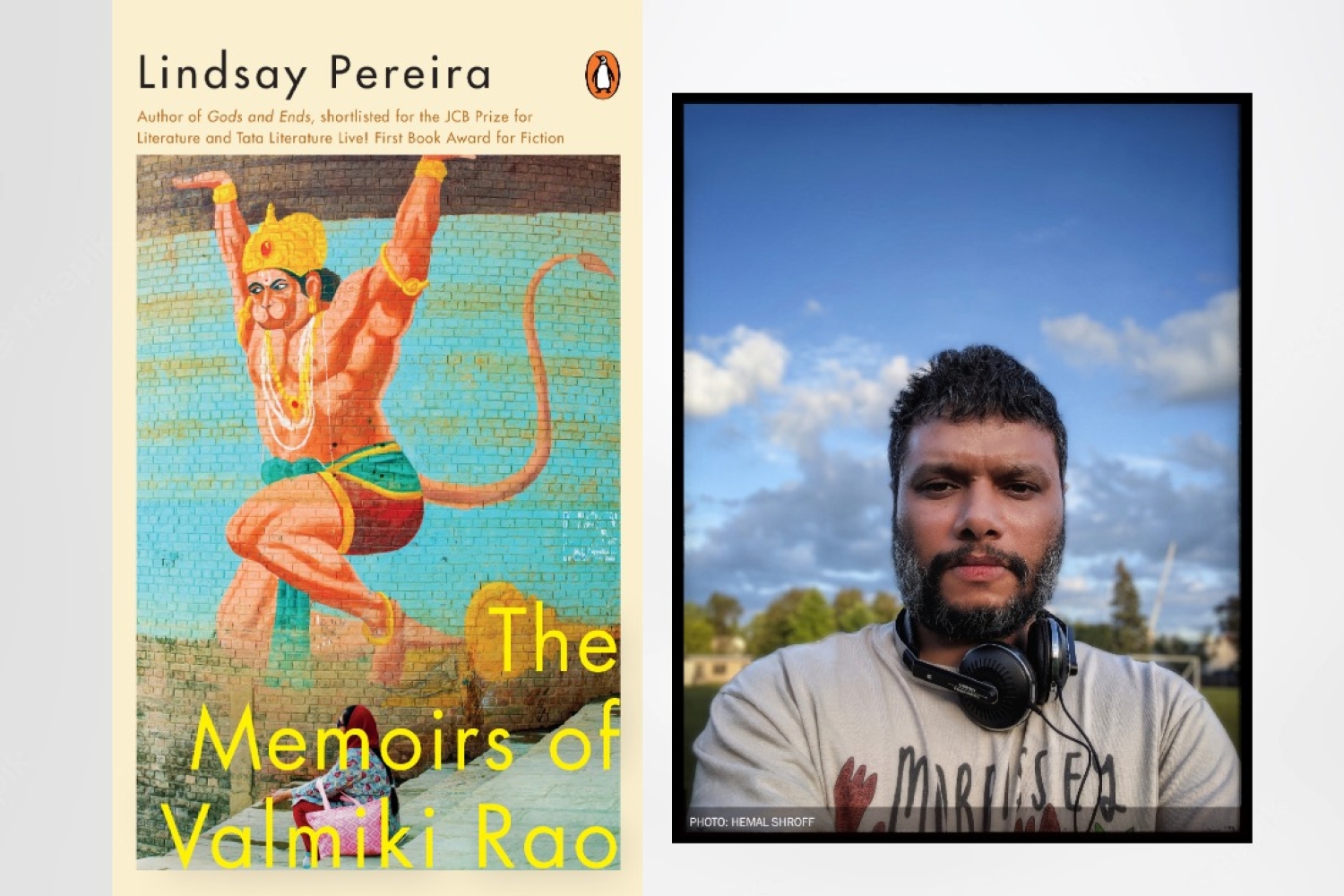

“I began working on The Memoirs of Valmiki Rao at around the time Gods and Ends was being printed. My outline for this novel was created a few years ago, and I revisited it to see if that scaffolding still held, and if the story I wanted to tell was still viable. I found that it was, which made me confident enough to go ahead and flesh the story out,” tells us author Lindsay Pereira of his journey towards crafting his second book, The Memoirs of Valmiki Rao, from his highly acclaimed debut novel. In an insightful interview, he tells us more about the making of his new book, which he states is, “a retelling of an epic, but also a warning.
What inspired your new book, The Memoirs of Valmiki Rao?
I began with a question: how would our gods or goddesses be treated in a country that constantly claims to respect them? I knew my response would give me the novel I had been thinking about. Another thing I wanted to write about was the Bombay riots of 1992 and 1993 because they had a profound impact on me when I was a teenager. I sensed then, and accept now, that there is a fine line between spirituality and hypocrisy, and that we, as a country, crossed it decades ago. I no longer recognise today’s India, but it doesn’t surprise me either, given that the seeds of this new and dysfunctional nation were sown by politicians who have been absolved of their crimes and are currently in positions of power.
Could you give us some insight into your writing process behind this book?
I immersed myself in versions of the Ramayana for a while, then deliberately moved away from them to make sure I wouldn’t stay too faithful to that familiar narrative arc. I wanted to pick and choose aspects of it carefully, allowing my own version to intersect with the epic at junctures that propelled my story along. The novel is split into seven parts — mirroring the Bala Kanda, Ayodhya Kanda, Aranya Kanda, Kishikindha Kanda, Sundara Kanda, Yuddha Kanda, and Uttara Kanda — but I have taken certain liberties to make sure my focus on Bombay’s history isn’t overwhelmed. In that sense, although it claims to be a retelling, it is anything but a faithful one.
What kind of challenges did you face with this book?
The challenges with attempting to retell an epic are always the same: how does one make it new, and is a retelling warranted if it doesn’t add relevance to a contemporary milieu? When it comes to a narrative as familiar as the Ramayana, there is also the recognition of multiple perspectives, all of which are feasible given how rich the characters are. I had to constantly wonder why one protagonist’s point of view was more important than another’s. I have made peace with the fact that there will always be other ways of telling the same story, but that is also what makes it such a powerful epic, and one that continues to find readers across geography and time.
What do you hope the reader takes away from your work?
I hope a reader grapples with the same questions I did and comes away with a glimpse of what I discovered — that behind every voice of self-righteousness is a hypocrite pulling the strings. We must rely on fiction to say what non-fiction and journalism are not saying much anymore. I hope readers read between the lines to recognise that the fabric of what made this country special is being torn, and that those responsible must be held accountable, if not by us because we lack courage, then by those who come after us.
As we had asked you previously as well, today, what does Bombay mean to you?
It used to mean home, but I have mixed emotions about it these days. When I visit it now, a part of me no longer recognises the city I was born and raised in. The ghettoisation that began in the early 1990s seems complete and profound, and its sense of inclusivity has almost vanished. I can only hope that this is just my pessimism at work.
Lastly, what’s next?
I have a collection of stories scheduled to be published next year and have just completed a novel that will be sent out to agents and potential publishers in the coming weeks.
Words Nidhi Verma
Date 07-08-2023